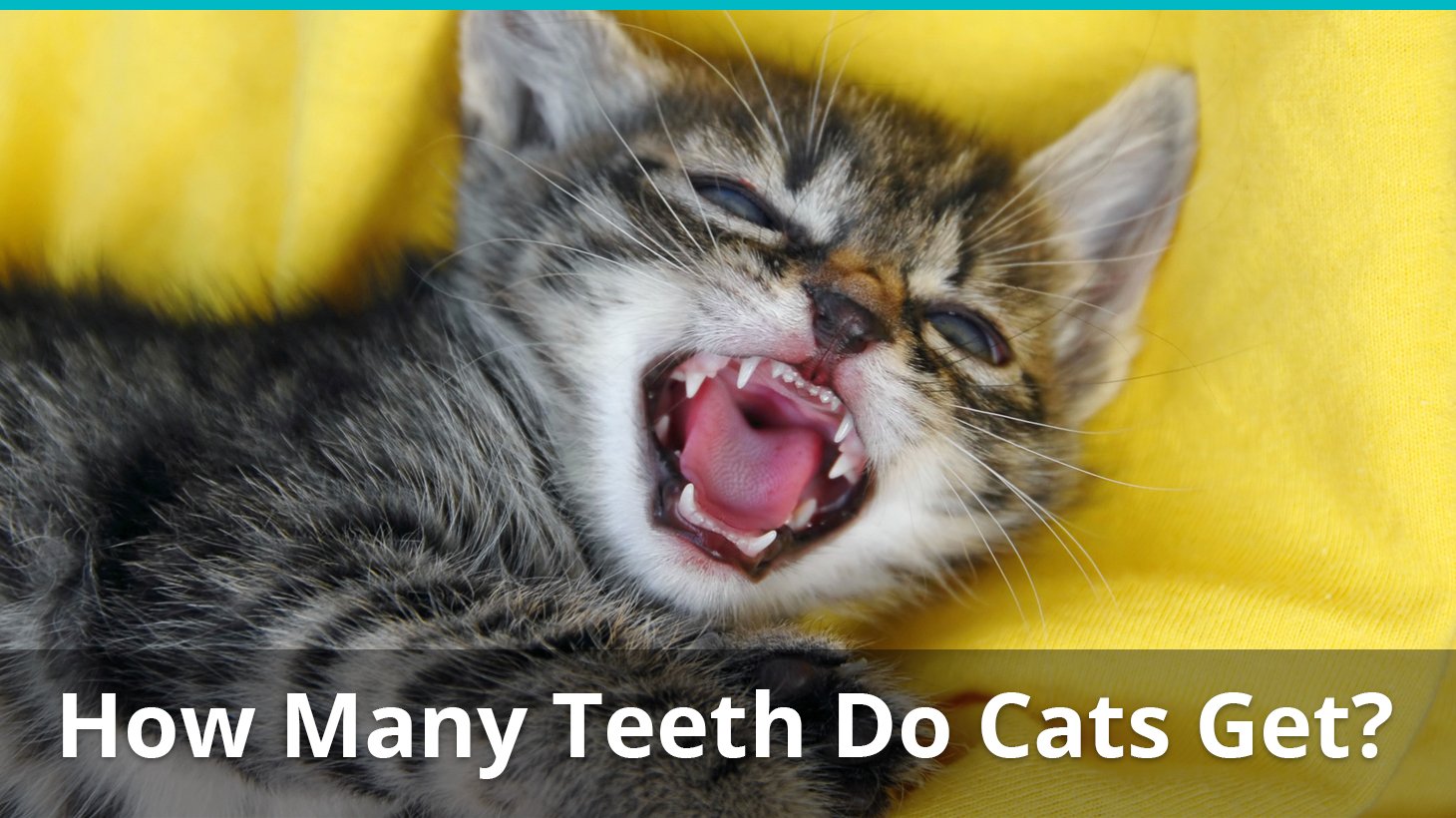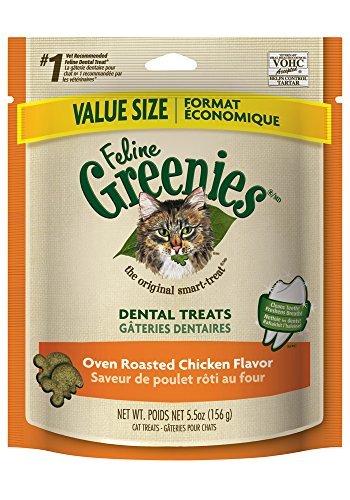Similar to human beings, cats have two sets of teeth: baby teeth and adult teeth.
A feline’s pearly whites are quite different from human teeth since cats are carnivores. As such, one of the primary differences is that their permanent adult teeth aren’t as flat as ours.
Cats can’t survive on salads, vegetables, and other types of human food, because their teeth are conformed to a meat-based diet. That’s one of the main reasons why you should feed your feline pet only with high-quality cat food and why you should stay away from good-for-nothing fillers, grains, and substitutes to real meat.
Just like any other living creature out there, kittens of all breeds go through various growth stages as they reach maturity. The same goes for when their baby or adult pearly whites are teething.
Our review process is unbiased and based on extensive research. If you buy through the links on our site, we may earn a commission.
How Many Teeth Does A Cat Have?
A baby kitten has 26 Teeth.
An Adult Cat Has 30 Teeth.
These two sets of teeth come in different growth stages and while only the “fangs” are usually visible, a healthy adult kitty should have 30 teeth, which is less than an adult dog has.
When Do Cats Get Their Teeth?
The teething process usually starts at some point between the second and the fourth week after the kitten is born. Similar to human babies, kittens will start acting out – biting, excessive meowing, hissing, and similar problematic behavior are completely natural for a kitten which is just beginning the teething process.
It’s of intrinsic importance to feed your newborn kitten with vitamins and high-quality cat food formulated specifically for young kittens. Excellent nutrition is essential not only for the kitty’s teeth but for its overall health and growth.
The permanent teeth come in when the kitty reaches 3-4 months of age. The baby teeth will fall out to make way for the permanent teeth.
If your cat isn’t suffering from any dental problems, it should have 30 permanent teeth by the time it reaches one year of age.
Unfortunately, feline teeth can get damaged just as easily as ours can for several reasons – bad genes, being from an unhealthy breed prone to dental problems, neglected dental hygiene, other health-related diseases, improper diet, and so forth.
How To Maintain Your Cat’s Teeth
If you don’t maintain your fluffy pal’s dental hygiene, your cat will develop oral health problems, including bad breath, tartar build-up, gum disease, tooth decay, and so on. And unlike humans, cats won’t benefit from eating cheese and other dairy products to strengthen their enamel.
Fortunately, there are ways to prevent oral health problems. One obvious preventive method is to brush your cat’s teeth with proper feline equipment. Toothpaste and brushes manufactured for humans have harmful ingredients and chemicals, which could pose danger to your pet’s health.
Another way to maintain those pearly whites is to use special dental treats for your kitty which prevent tartar build-up and clean your pet’s teeth without the need of a toothbrush.
Our review process is unbiased and based on extensive research. If you buy through the links on our site, we may earn a commission.
Greenies dental treats for feline furballs are among the best on the market.
These dental treats come in the form of chewable bites that are manufactured in a variety of different flavors to meet your kitty’s pretentious preferences – salmon, beef, chicken, ocean fish, etc.
The treats are as delicious as they are packed with vitamins, minerals, taurine, and other essential ingredients. Moreover, they are low in calories and are fine to feed your cat daily as long as it is over 12 months of age.
The dental treats’ crunchy texture not only cleans your cat’s teeth of leftover food, but it also removes the tartar and the nasty breath. The treats are quite affordable and will help prevent dental problems in the future.
Feline Dental Facts
Cat Teeth Are Made For Meat
As cats are carnivores and their main source of sustenance comes from meat, their molars are sharp – unlike human molars or the teeth of herbivorous creatures. Cat molars can’t grind food because their teeth are made for shredding and cutting meat chunks.
Cats Use Their Teeth For Grooming
All feline furballs use their incisor teeth for grooming purposes. The first set of permanent teeth to emerge during teething the incisor teeth. These incisors can nibble through matted fur, insolent fleas, and other foreign objects stuck to the cats’ bodies. This, however, doesn’t mean that you don’t need to groom your kitty regularly.
Feline Bites Are Dangerous
Cat bites are dangerous not only to human beings but also to other animals. They almost always lead to inflammation, abscesses, and other types of infection. The reason for this is that feline “fangs” are long, sharp, and often penetrate skin tissue on a deep level. Moreover, they carry various types of bacteria which can cause a severe infection.
Cat Teeth Are Problematic
Feline teeth can be just as problematic as human teeth. As your kitty gets older its teeth will worsen regardless of how carefully you’re taking care of its dental hygiene. Cavities and gum diseases are common for cats. In some cases, felines may require dental surgeries or even braces (yes, cat braces are a real thing!). Your cat’s dental health and overall well-being should be your priority, so don’t ever neglect your feline pal’s health needs.


